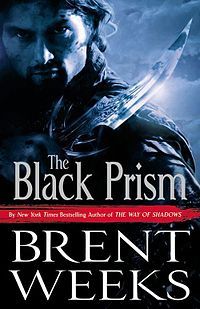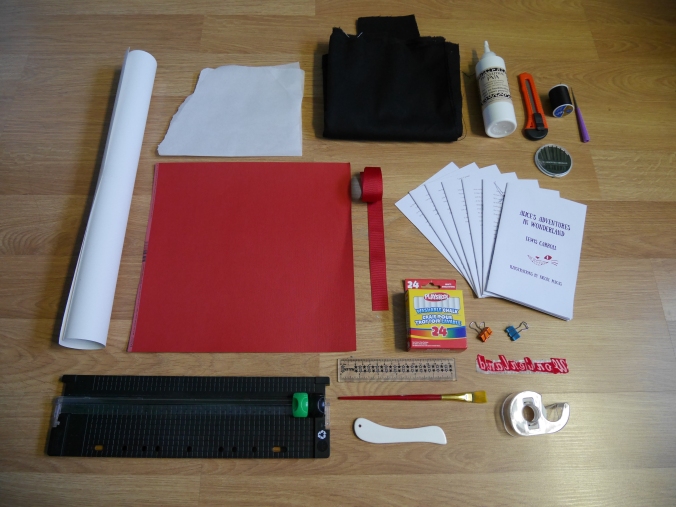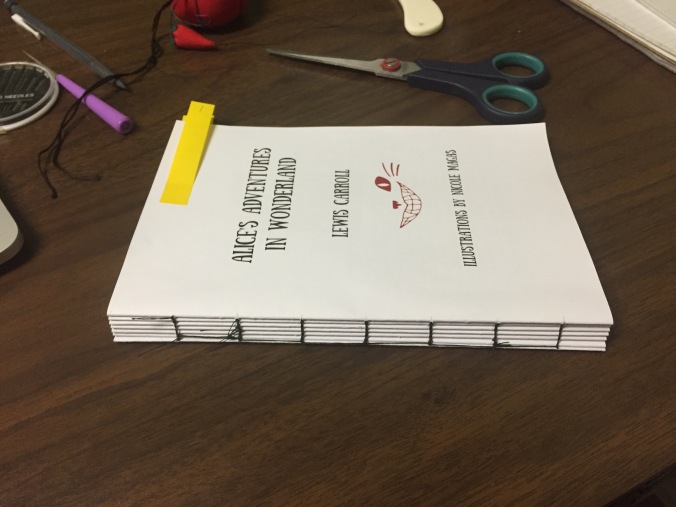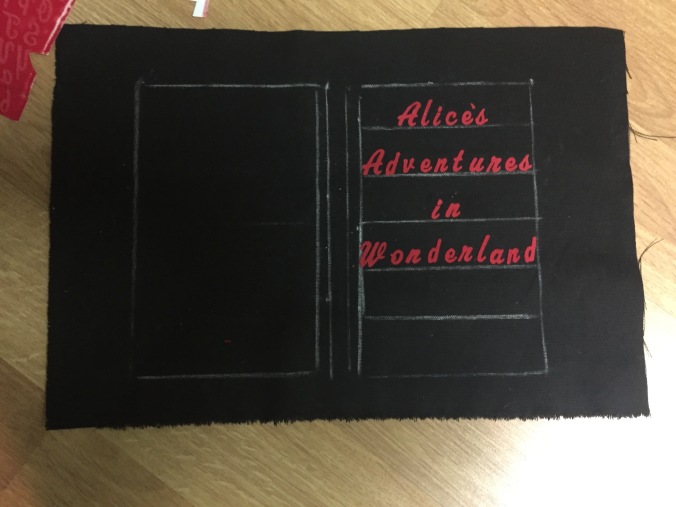The Black Prism
by Brent Weeks
763 pages
![]()
I can’t remember the last time a book put me through such an emotional wringer. Maybe The Man with the Knives or Last Argument of Kings. I don’t feel emotionally capable of experiencing my own life right now. Goddamnit, this was a good book. Not a flawless book, but a damn good one. How good? Well, halfway through reading it some asshole stole my Kindle and I was more pissed off that my reading had been interrupted than that someone had made off with a $100 piece of electronics. It was that good.

Or, what you get when you combine The Man in the Iron Mask with a bag of Skittles.
(Also spoilers, in case you’re new here)
The Black Prism is something of a bildungsroman epic/flintlock fantasy that is stripped of all the irritating parts of both genres. What’s left is a muscular narrative that is at times comedy of errors and at times painful tragedy, filled with charismatic characters, a fully fleshed out world, and lots and lots and lots of magic and battle and bloodshed.
The plot is somewhat buried and muted and typical of this sub-genre: ‘there is a growing and powerful uprising that threatens to unseat the entire sociopolitical and religious status quo that we must attempt to quell because we’re the good guys…. mostly. The marginally-better-guys, at least.’ But arguably the plot isn’t what makes this book shine. It’s the characters and individual events that punch you repeatedly in the emotion bone that make this book so memorable. And that twist! A book has never pulled the rug out from under me with such effect. I was floored, and completely happy to be so.
So let’s talk about the plot. The book more or less centers around Kip, a fat teenager with an abusive mother who watches his entire town and everyone he ever loved burned to the ground yadda yadda, and “Gavin,” the practically omnipotent religious leader of the free world who would be a textbook Mary Sue if he wasn’t so full of lies and dark secrets that you’d expect him to bleed tar. As Kip sets off on a journey to kill the man who destroyed his life, “Gavin” takes up a full bag of FML quests and sorry-not-sorry starts a war in the process. Kip is revealed to be “Gavin’s” son, which makes “Gavin’s” life much more complicated as he juggles the political world while also doing his best to hide some pretty ruinous secrets. As these things tend to happen, all hell breaks loose, the characters have to split up, Kip learns some pretty kickass magical tricks, lots of people die, and the heroes more or less get away. I mean, it’s epic fantasy, what more can I say?
One of the best things about this book is the in media res way it deals with the story’s history. The book takes place 16 years after a disastrous war that ruined an entire country and, predictably, is still rippling effects out into the world. Many of the characters live and breathe the past and present trauma of the war. The history leading up to the events of the book is vibrant and vigorous, and exerts as much influence on the plot as the characters themselves do.
The characters likewise all have complex interpersonal histories that are given to the reader in piecemeal revelations that add delicious layers of complexity to the story. The complicated relationship between Gavin and Dazen in particular injects a level of excitement and intrigue into the story that is refreshing in contemporary fantasy. Likewise, “Gavin’s” relationship to his political and spiritual position in society is rocky and unsettled, giving his character several layers of depth. And if his past weren’t enough to put him in the anti-hero’s seat, this internal moral strife certainly would.
Weeks’ literary talents really shine through in his delivery of an immersive world populated with complex characters and interpersonal relationships that reflect a large part of the human experience. However, there are some moments where the reader’s suspension of disbelief is stretched too far for comfort.
To begin with, Kip’s character lacks consistency in ways that can just barely be explained away by his age. At times he is meek and apologetic, only to be bold and sarcastically brash in the next breath. Weeks seems to be trying to play nature and nurture against each other in this character. On the one hand, being a Guile imbues Kip with a certain degree of bravado and exaggerated ego. On the other hand, his abusive, impoverished upbringing dampens his bravery and his self-esteem. These two competing faucets of Kip’s personality aren’t threaded together particularly well, and the end result is a character who is at times schizophrenically at odds with his own personality.
Secondly, I was pretty disappointed when Karris was captured. I think I actually put the book down for a minute and cried, “Why have you betrayed me?!” Up until then I had been enjoying every single character and arc in the story. I was just really bummed that the SFC had to be captured and subjected to a madman’s gross fantasy. I actually started skimming the chapters in which she was captured, just so I didn’t have to feel such disappointment. To be fair to Weeks in this, the capture scenario is downplayed in the ridiculousness of Garadul’s demands. Furthermore, from a mechanics point of view, Karris’ capture puts a perspective in the enemy camps without fracturing the number of points of view even further. And I did appreciate that “Gavin” didn’t go all White Knight when he learned that Karris had been captured. Weeks kept him focused on the bigger problems and instead sent Kip and Liv to blunder her rescue. So, this whole business with Karris is forgiven. I guess.
Finally, I wasn’t entirely convinced by Liv. Weeks does his best to set up her motivations throughout the course of her arc, however her sudden turn against “Gavin” in particular was hard to swallow. I could understand her misgivings against the Chromeria–Weeks actually does a stellar job of setting that up–however “Gavin” personally gives her no reason to turn against him in the way that she does. It’s her unfounded speculation that does it, which was hard to believe from a reader’s perspective. Likewise, how “Gavin” comes by the information of her turning sides is largely a mystery to the reader.
All that aside, however, The Black Prism is truly a gem within the fantasy library. Without going into too many spoilery details–because you really do have to read the book as it is presented to get the most out of it–here are some of my favorite highlights:

– Gavin. Just, everything Gavin. All Gavin. He’s an amazing character all around. Flawless in his perfection and his imperfection.
– That twist. I cannot praise it enough. If you’ve read the book, you know what I’m talking about. It’s been weeks since I read it and I still giggle over it. My friends are tired of hearing me talk about it. And I’m gushing about it even here! Gah!
– The magic system. It was ridiculous at first, but the more immersed in the world I got, the more it made sense, and the more glad I was that color was used as the base for the whole thing.
– The Freeing ceremony. The whole thing was soul tearing. I was teary by the end. And loving “Gavin” as a character so much more.
– The final scene with Zymun. Admittedly, I was upset when I first read it. I shook the book and screamed, “You goddamn pyromaniac brat! Snot-nosed little fire starter! *RAGE*” But upon further reflection, it was a good authorial decision. A virtually omnipotent character can only work for the first book of a series. I’m sad, but in a good way.
– The prison break scene. Oh~ I was on the edge of my seat through the whole thing, and at the end, I was cry-laughing. The whole arc with “Dazen” was such a red herring, but in such a good way. I’m very pleased with it.
I’m itching to read the next books in the series. I ran out and bought the next three as soon as I was finished with this one, but sadly I have a semester of Durkheim, Marx, and Weber to read through before I have a month off to read more Weeks. Until then, it’s everything I can do to keep from peeking into the next books to sample what happens next.


















